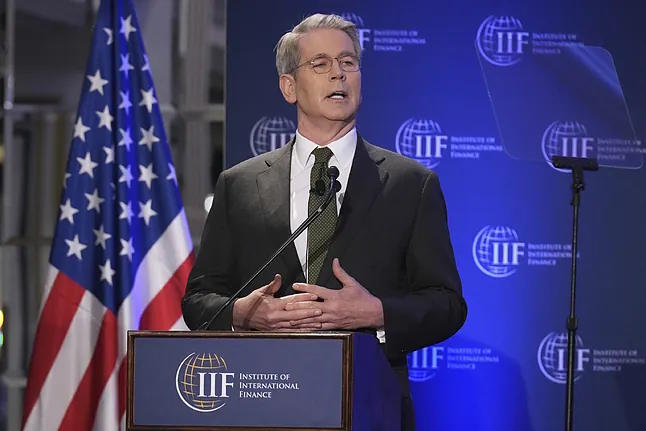The US Treasury Secretary, Scott Bessent, has criticized the loss of focus in the agendas of the International Monetary Fund (IMF) and the World Bank with which the US administration is willing to collaborate "as long as they remain true to their missions", as reported by Europa Press.
At an event of the Institute of International Finance (IIF) held in Washington, the city that hosts the headquarters of these international institutions and coinciding with the spring meeting of the two entities born from the Bretton Woods Conference in 1944, Bessent has stated that they "must step back from their scattered and unfocused agendas," which have hindered their ability to fulfill their core mandates.
In this regard, the US Treasury official has affirmed that the US government wants to leverage its leadership and influence in these institutions to push them to fulfill "their very important mandates," while also announcing that Washington will demand accountability from the leadership and staff of both institutions for "real progress."
Regarding the institution led by Kristalina Georgieva, the US official has emphasized the need for "the IMF to return to being the IMF," recalling that its mission is to promote international monetary cooperation, facilitate balanced growth of trade, and discourage harmful policies such as competitive currency depreciation.
However, for Bessent, the IMF has deviated from its mission and now devotes "an disproportionate amount of time and resources to working on climate change, gender, and social issues," which are not part of the Fund's mission, while its focus on these areas "is displacing its work on critical macroeconomic issues."
Furthermore, for the US Treasury Secretary, the IMF must be a staunch advocate for truth, not just towards some members, as while acknowledging that Washington deserves criticism for its public finances, he has warned that they will not tolerate the IMF refraining from criticizing countries most in need, "mainly countries with surpluses."
"In line with its core mandate, the IMF must call out countries like China, which have implemented distorted global policies and opaque monetary practices for decades," he argued.
On the other hand, for Bessent, the IMF must redirect its loans towards addressing balance of payments issues, emphasizing that these should be temporary, holding countries accountable for implementing economic reforms and, at times, refusing to lend to those countries that do not implement them.
